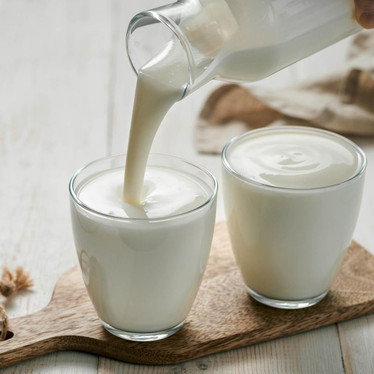
Beat the digestive blues with probiotics
Dealing with digestive issues isn't pretty, and this can be a very uncomfortable health issue to cope with. However, problems with bloating, flatulence and other digestive concerns don’t have to be impossible to manage.
If you’re clued up on healthy eating habits, you may have already heard about probiotics, a special type of ‘good’ bacteria that can help boost your digestive system in a variety of ways.
There are many different types of probiotics, and some of them can be particularly effective for specific digestive issues.
Bloating, flatulence and poor digestion
Flatulence, bloating, belching and other similar conditions are symptoms of excess gas and air within the body’s digestive system.
If your digestive system isn’t working at its best, certain components in your food won’t be broken down sufficiently. This can lead to the formation of intestinal gas. Swallowed air and changes in naturally occurring intestinal bacteria can also produce this form of gas.
Gas that isn’t passed out of the body through burping or flatulence can cause a build-up leading to bloating – the sensation where your abdomen feels larger than usual.
The digestive system is one of many areas within the body that naturally contains healthy bacteria, which aid in the digestive process and help the body break down food. However, sometimes the ‘good’ bacteria in the digestive system fall out of balance, and this is where probiotics can step in.
The benefits of probiotics
Probiotics are microorganisms such as bacteria or yeast, which can work to improve the health and function of our digestive system.
Think of them as ‘friendly’ bacteria that colonise the stomach and other areas, fighting off the ‘bad’ bacteria that can lead to conditions such as diarrhoea.
Probiotics have been shown to help in the movement of food throughout the intestine by regulating the process, which can provide great benefits for digestive issues.
Probiotics can be found in a variety of foods such as yoghurt, cheese and dairy drinks, as well as in supplements such as powders, liquids and capsules.
The most common types of probiotic bacteria fall into two groups, Lactobacillus or Bifidobacterium, with each group containing many different species and strains. Certain strains of probiotic bacteria are useful for managing specific types of digestive conditions.
For example, irritable bowel syndrome (IBS) causes gas, bloating and diarrhoea through abnormal muscle movements in the intestine. Food is either passed through the system too quickly or too slowly, resulting in discomfort. Probiotics can help to ease the symptoms of IBS and add more of the ‘healthy’ bacteria required for good digestion.
Sometimes, the ingestion of antibiotics to fight other ailments can disrupt the balance of healthy bacteria in the body by reducing the amount of good bacteria in the gut.
This may lead to conditions such as diarrhoea, but the probiotic strain Saccharomyces boulardii can be effective in preventing it, especially if it is taken prior to the first dose of antibiotics.
When the balance of bacteria within the digestive and immune systems is out of whack, this can also result in conditions such as constipation, flatulence and bloating. By taking probiotics, you can help restore and rebalance your body’s supply of the good bacteria necessary for a healthy digestive system.
Specific strains such as Lactobacillus acidophilus, Lactobacillus casei, Lactobacillus rhamnosus, Bifidobacteria bifidum and Bifidobacteria longum have all been proven to help promote a healthy balance of bacteria, aid in digestion and neutralise toxins in the gut.
But the health advantages of probiotics aren’t limited only to the digestive system – they can also help other body concerns as well. For example, skin conditions such as eczema and other allergies (particularly those related to cow’s milk) can be improved with Bifidobacterium lactis and Lactobacillus GG.
The recommended doses for taking probiotics range from 1 billion – 10 billion colony-forming units (CFU), which equates to one or two capsules, several days per week.
It’s important to note that the microorganisms in probiotics need to be active or alive when you take them, so check the directions as some forms will need to be refrigerated to protect the bacteria from exposure to heat, moisture or air. If the probiotic has been freeze-dried (in capsule form), then refrigeration isn’t necessary.
Nutra-Life Probiotica P3 is a fridge-free, one-a-day blend of 3 bacteria strains: Lactobacillus gasseri, Bifidobacterium bifidum & Bifidobacterium longum. It assists with digestive health & supports a healthy immune function. You may also be interested in the new Probiotica P3 for Kids. They are both available for secure order from our online shop.
We’d Love Your Feedback
Have you used probiotics before?
If yes, what benefits were you hoping for and did you experience them?

